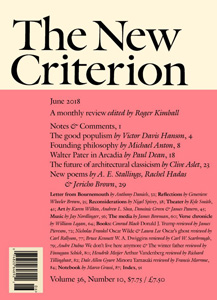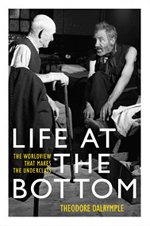
Thomas Sowell is an American economist, social philosopher, and political commentator. He is a senior fellow at the Hoover Institution. With widely published commentary and books—and as a guest on TV and radio—he became a well-known voice in the American conservative movement as a prominent black conservative. He was a recipient of the National Humanities Medal from President George W. Bush in 2002.
Marvin Olasky is a senior fellow of the Discovery Institute and an affiliate scholar at the Acton Institute. He also chairs the Zenger House Foundation, serves as a Zenger Prize judge, and is the author of 29 books. From 1992 through 2021, he edited World.
William Julius Wilson is an American sociologist, a professor at Harvard University, and an author of works on urban sociology, race, and class issues. Laureate of the National Medal of Science, he served as the 80th President of the American Sociological Association, was a member of numerous national boards and commissions. He identified the importance of neighborhood effects and demonstrated how limited employment opportunities and weakened institutional resources exacerbated poverty within American inner-city neighborhoods.
Compassionate conservatism is an American political philosophy that stresses using conservative techniques and concepts in order to improve the general welfare of society. The philosophy supports the implementation of policies designed to help the disadvantaged and alleviate poverty through the free market, envisaging a triangular relationship between government, charities and faith-based organizations. The term entered mainstream parlance between 2001 and 2009, during the administration of US President George W. Bush. He used the term often to describe his personal views and embody some parts of his administration's agenda and policy approach.

The New Criterion is a New York–based monthly literary magazine and journal of artistic and cultural criticism, edited by Roger Kimball and James Panero. It has sections for criticism of poetry, theater, art, music, the media, and books. It was founded in 1982 by Hilton Kramer, former art critic for The New York Times, and Samuel Lipman, a pianist and music critic. The name is a reference to The Criterion, a British literary magazine edited by T. S. Eliot from 1922 to 1939.

Anthony Malcolm Daniels, also known by the pen name Theodore Dalrymple, is a conservative English cultural critic, prison physician and psychiatrist. He worked in a number of Sub-Saharan African countries as well as in the East End of London. Before his retirement in 2005, he worked in City Hospital, Birmingham and Winson Green Prison in inner-city Birmingham, England.

The underclass is the segment of the population that occupies the lowest possible position in a class hierarchy, below the core body of the working class. This group is usually considered cut off from the rest of the society.

The Public Interest (1965–2005) was a quarterly public policy journal founded by Daniel Bell and Irving Kristol, members of the loose New York intellectuals group, in 1965. It was a leading neoconservative journal on political economy and culture, aimed at a readership of journalists, scholars and policy makers.

Roger Kimball is an American art critic and conservative social commentator. He is the editor and publisher of The New Criterion and the publisher of Encounter Books. Kimball first gained notice in the early 1990s with the publication of his book Tenured Radicals: How Politics Has Corrupted Higher Education.

Yuval Levin is an Israeli-born American conservative political analyst, academic, and journalist. He is the founding editor of National Affairs (2009–present), the director of Social, Cultural, and Constitutional Studies at the American Enterprise Institute (2019–present), and a contributing editor of National Review (2007–present) and co-founder and a senior editor of The New Atlantis (2003–present).

Richard Brookhiser is an American journalist, biographer and historian. He is a senior editor at National Review. He is most widely known for a series of biographies of America's founders, including Alexander Hamilton, Gouverneur Morris, and George Washington.
James S. Panero is an American cultural critic and the executive editor of The New Criterion, a conservative culture journal.
Fred Siegel was an American historian and conservative writer who was a senior fellow at the Manhattan Institute for Policy Research, a conservative think tank which focuses on urban policy and politics. He served as a professor of history and the humanities at Cooper Union and was a contributor to numerous publications, including The New York Post, The New Republic, The Atlantic Monthly, Commonweal, Tikkun, and Telos.
The social novel, also known as the social problemnovel, is a "work of fiction in which a prevailing social problem, such as gender, race, or class prejudice, is dramatized through its effect on the characters of a novel". More specific examples of social problems that are addressed in such works include poverty, conditions in factories and mines, the plight of child labor, violence against women, rising criminality, and epidemics because of over-crowding and poor sanitation in cities.
Howard Husock is a senior fellow in Domestic Policy Studies at the American Enterprise Institute. He was formerly vice president for policy research at the Manhattan Institute, where he was also director of its Civil Society Initiative and a contributing editor to the Institute's quarterly magazine, City Journal. He is the author of the books, "The Poor Side of Town and Why We Need it" ; 'Who Killed Civil Society?' ; "Philanthropy Under Fire" ; "America's Trillion-Dollar Housing Mistake: The Failure of American Housing Policy".

Life at the Bottom: The Worldview That Makes the Underclass is a collection of essays written by British writer, doctor and psychiatrist Theodore Dalrymple and published in book form by Ivan R. Dee in 2001. In 1994, the Manhattan Institute started publishing the contents of these essays in the City Journal magazine. They are about personal responsibility, the mentality of society as a whole and the troubles of the underclass. Dalrymple had problems in finding a British publisher to help him turn his individual essays into a collection, so he eventually turned to American companies for publication.
In Marxist theory, the Lumpenproletariat is the underclass devoid of class consciousness. Karl Marx and Friedrich Engels coined the word in the 1840s and used it to refer to the unthinking lower strata of society exploited by reactionary and counter-revolutionary forces, particularly in the context of the revolutions of 1848. They dismissed the revolutionary potential of the Lumpenproletariat and contrasted it with the proletariat. Among other groups, criminals, vagabonds, and prostitutes are usually included in this category.
The Manhattan Institute for Policy Research is an American conservative think tank focused on domestic policy and urban affairs. The institute's focus covers a wide variety of issues including healthcare, higher education, public housing, prisoner reentry, and policing. It was established in Manhattan in 1978 by Antony Fisher and William J. Casey.
Naomi Schaefer Riley is an American conservative commentator and author. Her writings have appeared in the Wall Street Journal, The New York Times, The Boston Globe, The Los Angeles Times, The New York Post, and The Washington Post, among others. At The Wall Street Journal, she covered religion, higher education, and philanthropy for the editorial page. Prior to this assignment, she founded the magazine In Character.
Stefan Kanfer was an American journalist, critic, editor, and author.










